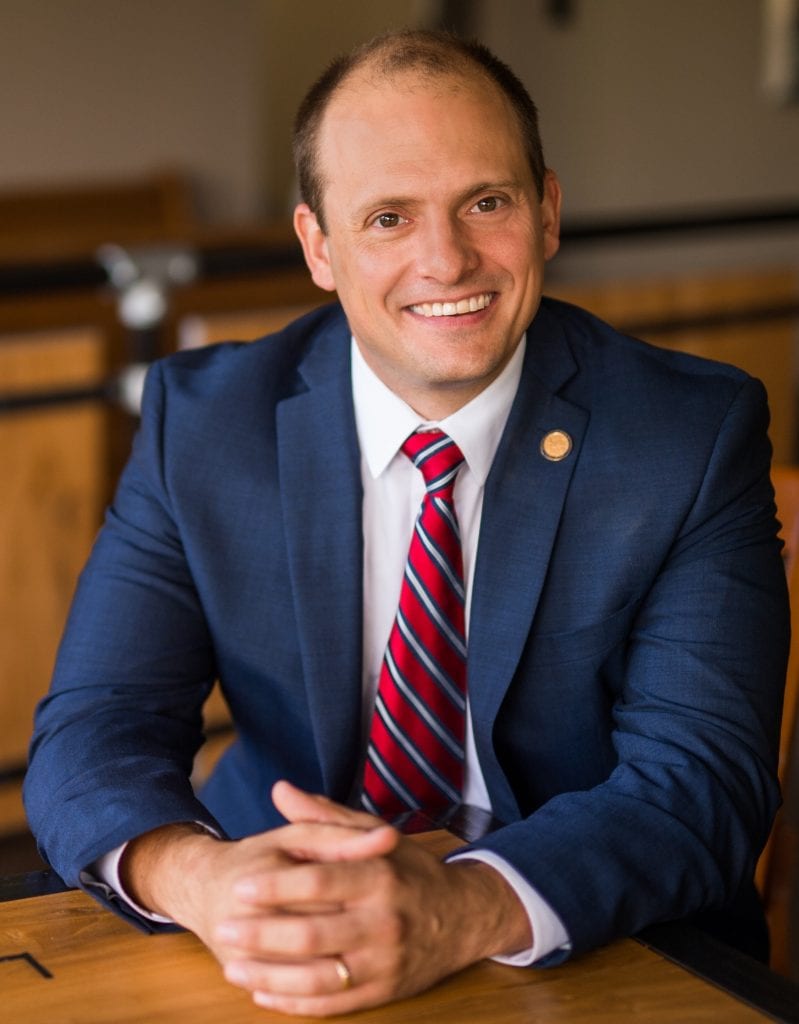
As a part of the Ernest R. Bartley Memorial Lecture Series, Florida State Senator José Javier Rodríguez spoke about the recent passing of Senate Bill 178 and climate change.
Due to the COVID-19 pandemic, the lecture hosted by the Department of Urban and Regional Planning was held on Zoom on October 1. Kristin Larsen, professor and director at the school, expressed what an honor it was to have Sen. Rodríguez speak to UF faculty and students, as well as family of the late Professor Bartley. She said, “We very much appreciate his thoughtfulness and advocacy on behalf of the State of Florida, as it is always wonderful to see so many of our students learning about planning in action.”
After kind introductions, Sen. Rodríguez began his speech about his work. “What we have in front of us in terms of climate change is enormous,” he said.
The focus was the recent passing of Senate Bill 178, which requires state-funded infrastructure projects on and near the coast to perform slip studies on their possible impact to the sea level. The bill was written originally four years ago, continued with a three-year filing process. He described the bill as “most transformative,” as it requires action rather than the ceremonial bills of the past.
He built a coalition on environmental, economic, and fiscal interests that climate impacts and uncertainties. He even wore big rainboots every day to work with #actonclimateFL in order to spread awareness. It passed unanimously to “what felt like kind of the last minute” according to Sen. Rodríguez. He elaborated, saying, “It was a nail biter in terms of whether or not we were going to get it through the gauntlet of the legislative process.”
These studies are performed with the Department of Environmental Protection in Florida. Sen. Rodríguez explained that because state dollars are invested in these projects, there is a responsibility to plan for the future in the interest of Florida citizens. The studies will “show us you have planned and taken into account the climate and sea level rise.” This way, residents and taxpayers know that an informed decision is being made.
“Climate is not an issue separate from everything else. Climate is an issue that impacts every single issue,” Sen. Rodríguez said. First, there was the perception of price tag on environmental projects. He needed to portray that “the longer we wait, the more economic pain we put our residents in.”
Climate change also impacts housing, emergency response, flooding, evacuations, 911 calls, food production, water quality, energy efficiency and much more.
Not only did Sen. Rodríguez talk about climate change, but social justice as a whole. “Social justice is at the center of a lot of the issues we are talking about,” he said.
COVID-19 is a great example, Sen. Rodríguez elaborated with, “When change is chaotic, it hurts the most vulnerable.”
This is why public health is the most direct way to get at the social justice implications of our response, or nonresponse to climate. When human health is the most directly impacted, a reliability is set.
This connection with the COVID-19 crisis and the climate crisis is has also made some political problems worst, in Sen. Rodríguez’s opinion, the fact that science and scientific conclusions have been politicalized is obviously very dangerous.